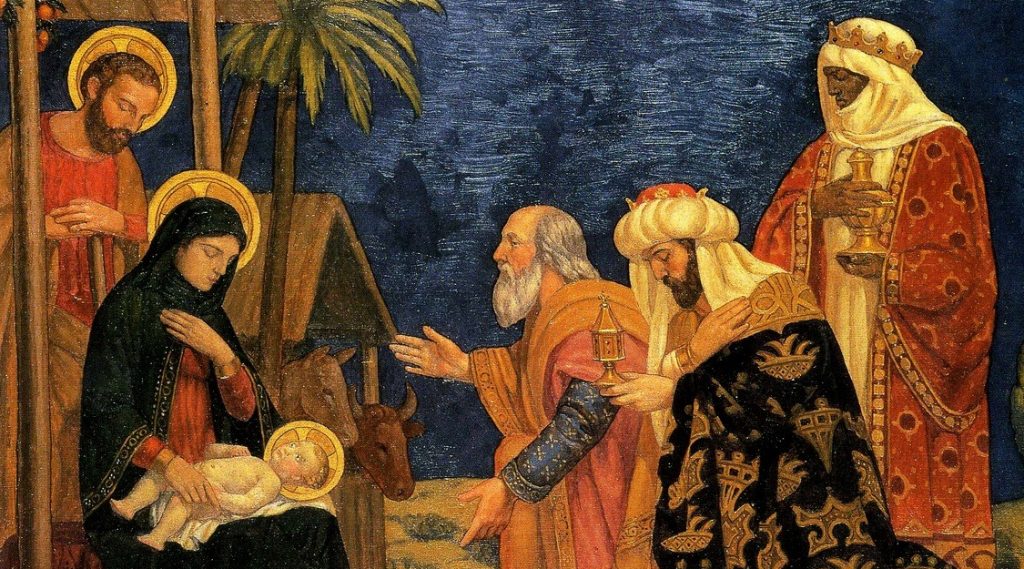Finding God in Paradox | January 3, 2021 Essay

The feast of the Epiphany invites us to seek God in unforeseen, unexpected places; in paradox rather than logic. The Magi, quite reasonably, assume that they will find the newborn “king of the Jews” in the palace of King Herod. Yet the Divine GPS leads them to a cave in Bethlehem – a stabling place for animals, their feed, and smelly dung! If you and I were planning the arrival of God’s messiah, I’m sure we would not create such an absurd tableau, but as God declares, “My thoughts are not your thoughts, nor my ways your ways” (Isaiah 55:8).
“Epiphany” derives from the Greek epiphaino, meaning “to be seen, to show, to give light to, become apparent, make an appearance.” Our gospel reading for today – a jewel of the New Testament – relates that the Divine Child makes his appearance in the shockingly unanticipated – in a backwater town, born to peasant parents, much removed from power and privilege. In this narrative, God’s providence confounds human reason, so that God’s grace may transform the human heart.
The Epiphany drama invites us to contemplate that God is not incarnated in pristine, gold-plated perfection, but rather in those smelly, dark, grubby places within and without that we’d rather not visit, and certainly don’t want anyone to see. Let’s imagine the Magi posing a question for spiritual reflection from across the millennia – “Where is the stable in your heart where this child wants to make his light be known? Where does the Lord want to set up a Christmas crèche in your life this year?” Is there a place of woundedness, pain, shame, addiction, or past trauma that will-power alone cannot bring to rest? Where is this vulnerable, unattractive place within and without where God wants to be born?
Welcoming God into the dark caves and squalid stables of the heart will be a radical revolution for the ego, that part of us that seeks accomplishment, status, and a burnished persona, so ready to put on facades and erect defenses. The ego’s logic would have us be more spiritual by being more angelic, i.e. chasing perfection, imagining we can be free from conflict and complexity, and floating three inches above the ground. The paradox of God’s grace, however, is that “the stone rejected by the builder has become the cornerstone.”
Our gospel closes with the Magi, ever attentive to God’s mysterious guidance, whether in the stars above or the angelic messages in the depths of the soul, being directed in their dreams not to return to Herod. The birth of the Divine Child has disturbed a kingdom and an empire. And so it will be with us. If we can find the strength, through the alchemy of prayer and God’s grace, to persevere long enough to allow this divine impregnation to take place within us, we too will be disturbed to our core. We will be transformed; our lives restructured.
As the Christmas season draws to a close, I invite you to spend time in prayer with the Magi today – before they leave “for their own country by a different road” – contemplating their amazement at where they have found the Divine Child, and the sheer delight they take in welcoming him as he takes his place among us. Perhaps ask for their blessing on us – may we share in their graced bewilderment and joy, and may we find and welcome Christ in those unexpected stabling places in our hearts.
– Brian Pinter
Pastoral Associate
